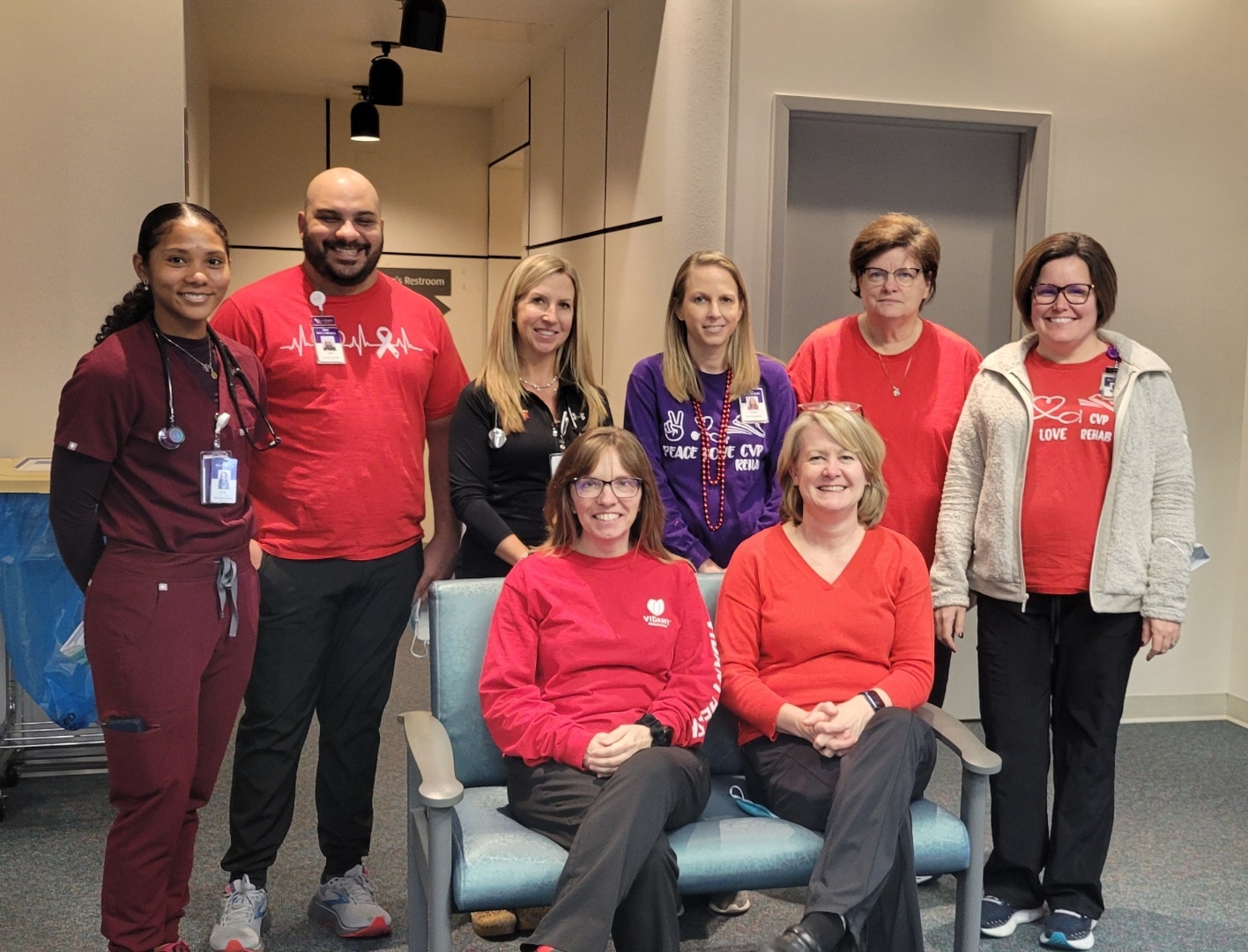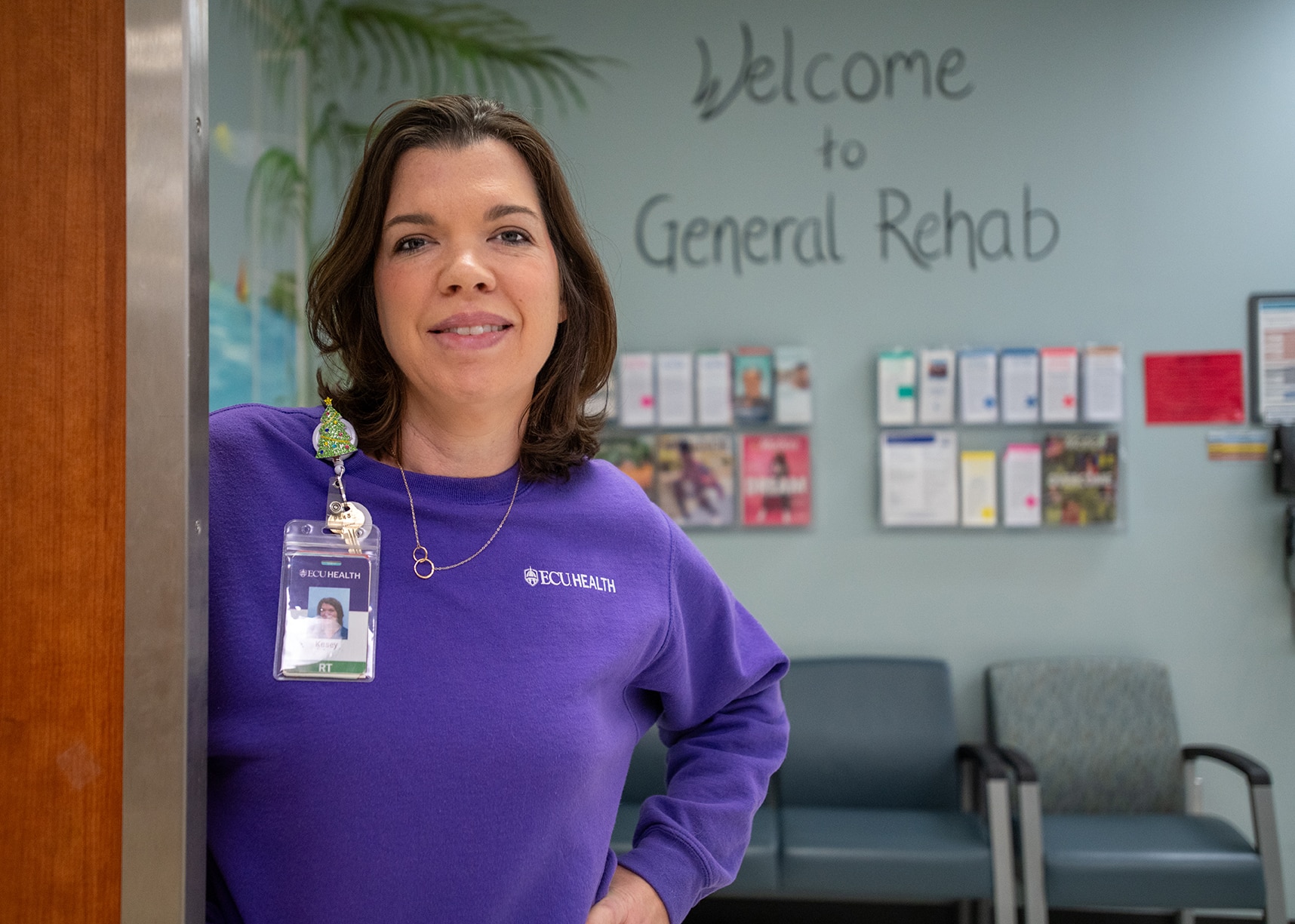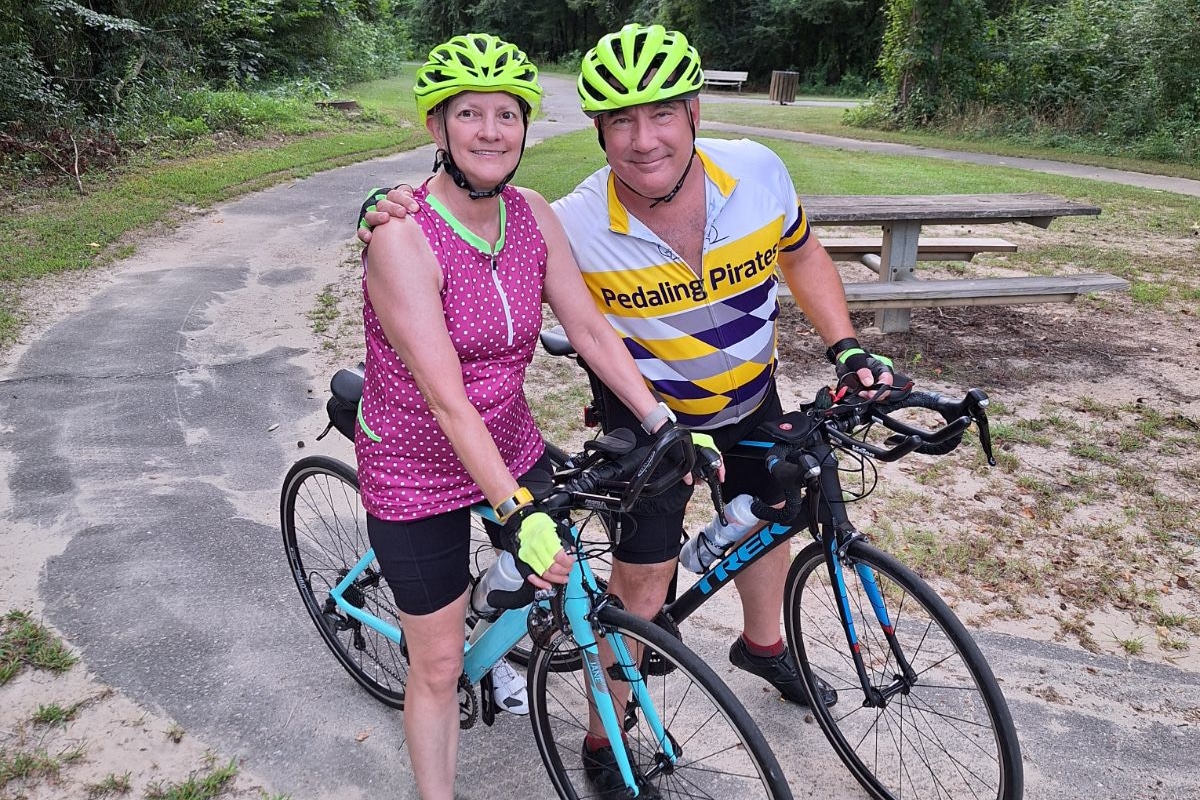John Core had never heard of pulmonary rehabilitation until he needed it.
“I went to urgent care with what I thought was a bad cold,” Core said. “But my heart was racing so they sent me to the hospital.”
Once in the ECU Health Medical Center emergency department, Core said they were unable to get his 144 beat-per-minute heart rate down with medications; the next step was to perform an electrical cardioversion, which is where the heart is shocked to restore a normal rhythm.
“I wound up in the ICU and stayed in the hospital for two weeks,” Core said. “When I got out, I had trouble breathing and had to be on oxygen, which I hated.”
After a six-week recovery, during which time Core said he could barely walk, his doctor recommended he try pulmonary rehabilitation.
“I was encouraged that my doctor thought I was strong enough to go,” Core said. Upon arriving, Core immediately felt comfortable in the rehab setting. “They were supportive and guiding. They were wonderfully attentive, and their sense of humor and generosity with their time made it the best experience I’ve ever had in health care.”
Pulmonary Rehabilitation helps reduce and control breathing difficulties and other symptoms of lung disease, including asthma, chronic obstructive pulmonary disease or pulmonary hypertension. ECU Health’s Pulmonary Rehabilitation team strives to help patients achieve their highest level of independence and physical ability.
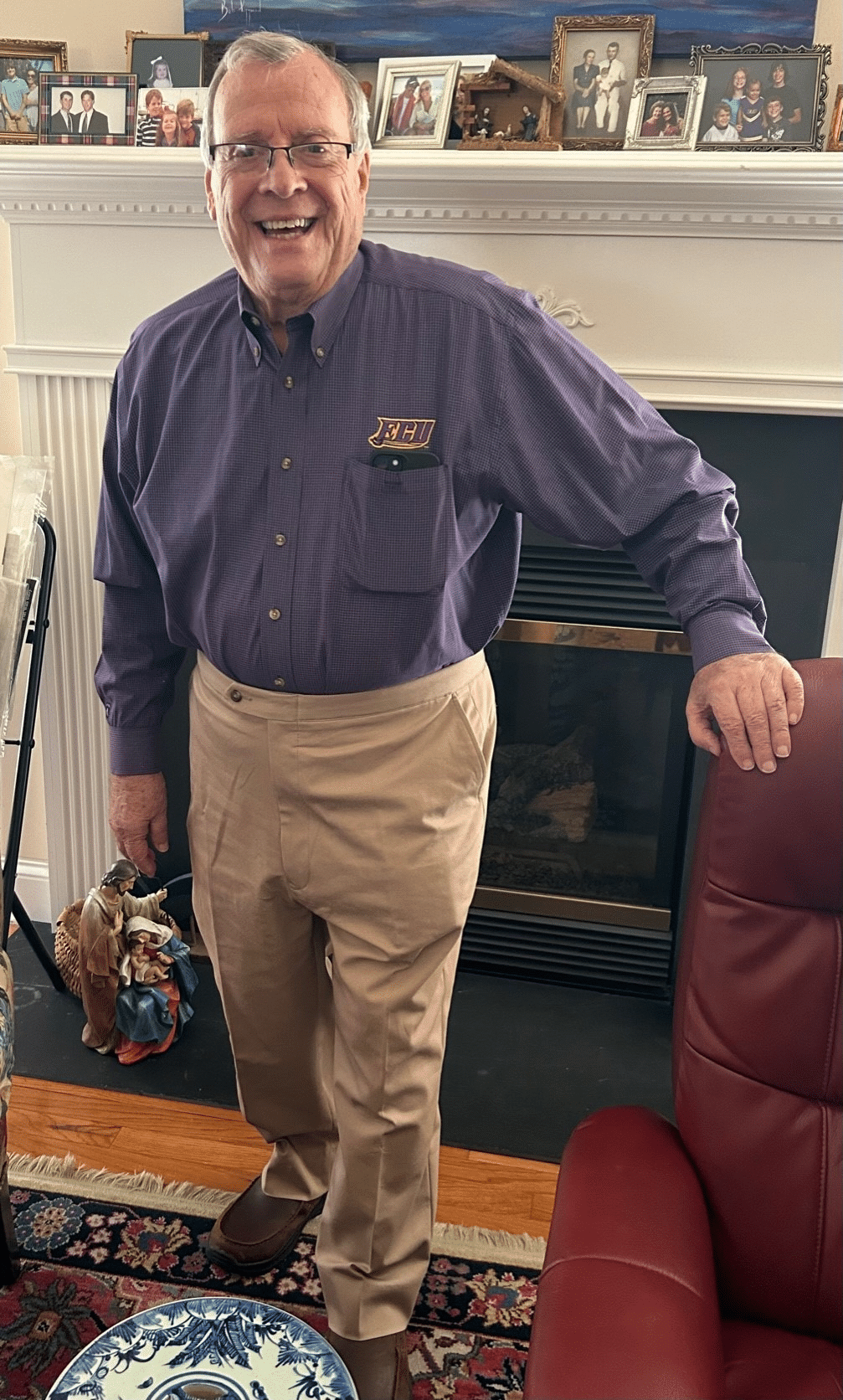
Initially, Core could only walk one lap around the therapy track with the assistance of oxygen before needing a rest; but week by week, he increased his distance. He was impressed by the rehab team’s consistent regimen and organization.
“You had a set routine every visit: sign a form, get weighed, take your blood pressure and then start your program.” The planning and tracked improvement helped drive him to want to go to therapy his prescribed three times every week. “They made me like exercise, when I hated exercise before. I used to think exercise was a waste of heartbeats.”
Core was also impressed by the pulmonary rehab team’s rigorous standards and attention to detail.
“At first, I couldn’t go to the grocery store because I couldn’t walk the aisles,” Core said. “Then I got the idea that I could lean on the cart and put my oxygen tank in the cart. I was so proud of myself.”
The next day, Core said he told his rehab therapist what he’d done.
“She said, ‘That’s not good enough.’ At first that hurt my feelings, but she was right. It pushed me to walk longer and harder.” Any time Core showed signs of fatigue, he was made to rest so they could monitor his oxygen saturation, which should be above 90%. “When they saw I was throwing PVCs [premature ventricular contractions] during my walk, they stopped therapy until I was cleared by my cardiologist,” Core said.
PVCs are extra, abnormal heartbeats that disrupt a normal heart rhythm.
One day, Core asked the rehab team if he could try walking two laps without oxygen.
“They agreed but monitored me very closely. After my first lap, I was at 90-91% oxygen, thank the Lord.”
From there, Core worked his way up to 11 laps just prior to graduation. Now, Core said he is feeling better than he did before his stay in the hospital.
“After graduating from pulmonary rehab, I joined the ECU Health Wellness Center, and I really enjoy swimming. I’ve lost over 30 pounds, I exercise regularly and I’m overall trying to improve how I live my life. I like where I’m at,” he said.
Core works at East Carolina University as a special assistant to the dean in the School of Dental Medicine, and he enjoys spending time with his wife of 32 years, his children and grandchildren. He’s also looking forward to a great grandchild on the way. This spring, he and his wife have plans to resume travel to visit his daughter and son-in-law in Charleston, South Carolina. Taking a trip like that wasn’t feasible prior to his experience with the amazing Pulmonary Rehab team.
“I had trouble walking; I couldn’t even walk a quarter of a mile,” Core said. “Pulmonary rehab helped me back. They know what they’re doing, and you can depend on them. To know that people care for you – it makes a difference. I can’t tell you how good they make you feel if you let them.”
Stay on ECU Health’s rehabilitation unit inspires Kasey Shue to pursue recreational therapist degree
To be a health care provider is to answer a calling. For some, the journey to health care is a straight line; for others, the road is winding. This series features stories from ECU Health team members who took the winding road, but found the destination to be worth the effort.
Kasey Shue, a recreational therapist, had no idea that a fulfilling career in health care was awaiting her when she got sick nearly eight years ago.
“I had an undergraduate degree in public relations and communications from East Carolina University,” Shue said. “I worked for the American Red Cross educating people about and coordinating blood drives. Then I went to the hospital with Guillain-Barre syndrome.”
Guillain-Barre is a condition in which a person’s immune system attacks the peripheral nerves, and it can result in near-total paralysis and breathing problems in the most severe cases. Shue’s case was, she said, pretty severe.
“I needed help with everything: I had to learn how to chew, swallow, sit, stand and walk again. It was like being a toddler.” Even more than the physical stress, Shue said that the emotional burden of being in the hospital was trying. “I had a husband and two small children at home,” Shue said. “We actually held my son’s second birthday party in rehab while I was there. It was difficult being away from my family and coming to grips with not being able to do the most simple of things.”
Shue spent two and a half months at ECU Health Medical Center, six weeks of those being on the rehabilitation unit. During her stay, Shue said all therapies were instrumental in her recovery, but recreational therapy (RT) made the biggest impact.
“I didn’t know what RT was before I was in the hospital,” Shue said. “RT affected me the most because it helps people keep being who they are despite their physical barriers. RT helped me schedule my son’s birthday party, and they took me on an outing to Target.” During her stay, Shue said she had a literal epiphany: “It hit me – I was going through this so I could go back to school to be an RT and give back. I wanted to pay it forward.”
After her recovery, Shue went back to school and graduated with her master’s degree in recreational therapy from East Carolina University. She also added an aquatic therapy certification to her degree because of her own personal experience in the therapy pool.
“Aquatic therapy was extremely beneficial to my recovery, so when I went back to ECU I was determined to get that certification,” Shue said.
Shue also knew she wanted to work in inpatient rehabilitation because, “you see people get better in a short time frame, and I like seeing that progress.” She didn’t know, however, that she’d end up working for ECU Health in the same rehabilitation unit where she recovered just a few years prior. “I had no idea I’d end up back here in the Medical Center, but in a lot of ways, it’s my perfect job to come back and help people in the same facility where I received help.”
Shue attributed her success both to the skills she learned in her previous career and the experiences she had as a patient.
“From my work with the Red Cross, I was already familiar with this hospital, as well as general health and wellness education. I also know how to work with people – not everyone does that well.” Shue said her time in the hospital gave her a unique perspective that allows her to be more empathetic with her patients. “I can relate to patients on a different level because I’ve been the one in the bed not wanting to get up or feeling like I couldn’t do the work. I have a rapport with patients and help them work through their pain. It’s made me successful in the patient care side of things.”
That professional perspective also bleeds into her personal life. “I tell people that now I’m Kasey version 2.0,” Shue laughed. “After being sick, I don’t take things for granted. I have more empathy for people, and the smaller things don’t stress me out like they used to.”
Shue said it’s an honor to work with the rehabilitation team, some of whom were there when she was a patient.
“A lot of my primary therapists when I was sick have moved on to other roles, but we still pass each other in the halls and have that relationship,” Shue said. “And some of my former therapists work with me every day. I have a professional respect for them, but we also have a deeper bond because they watched me and helped me get better.”
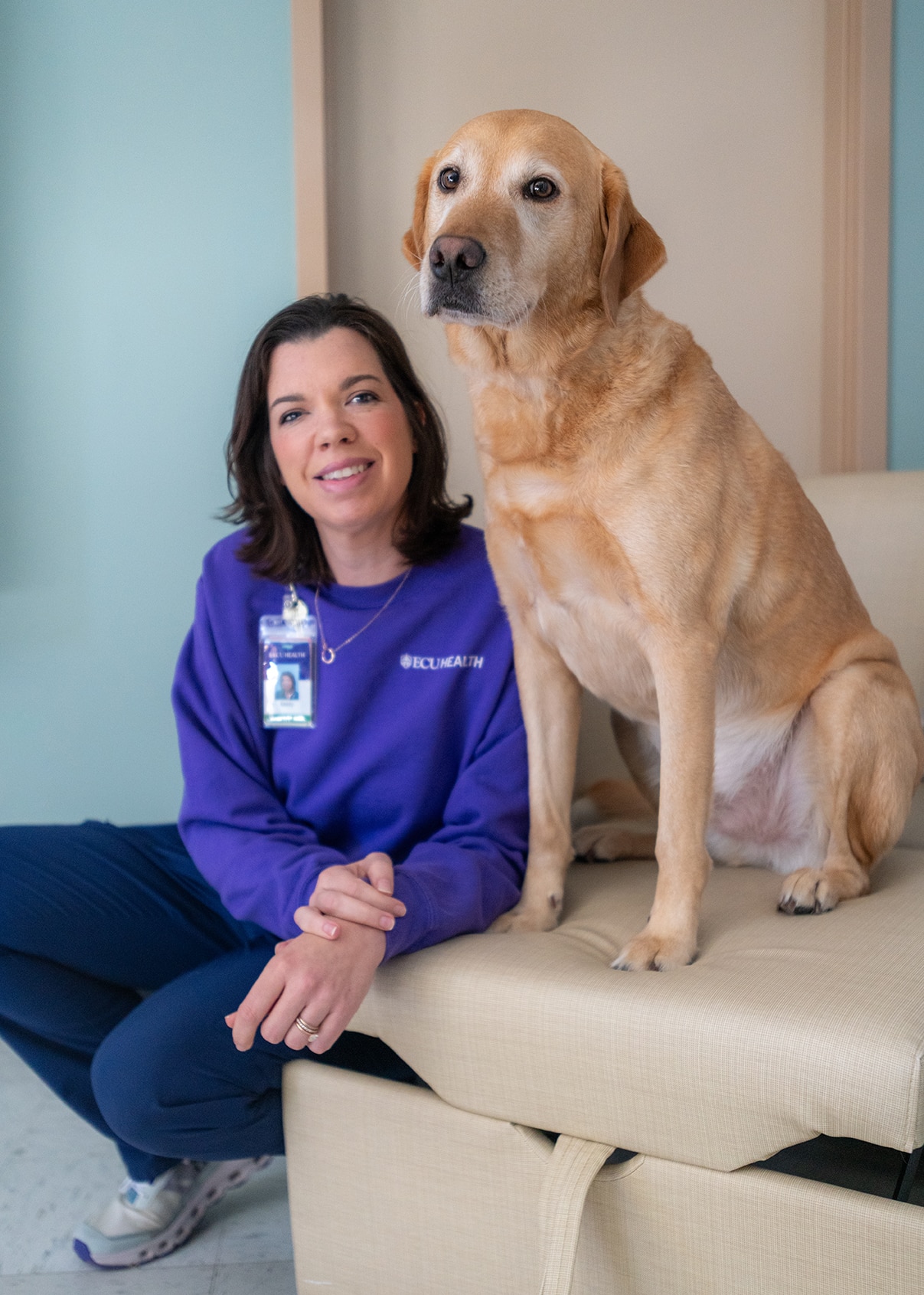
Working beside the people who helped her and providing services to people who are in the situation she was in eight years ago is gratifying.
“I really enjoy what I do, and it doesn’t feel like work. I tell people that I get paid to play.” Shue is also the handler for Clive, a dog who is a part of the Animal Assisted Therapy program and who helps patients in the rehabilitation unit a few days a week. “I’ve always been a dog lover, and as a patient I had several dogs that visited me. I knew pet therapy fell under the RT umbrella; the pieces came together so we could have Clive come in and work with our patients.”
Shue said these professional experiences fill her cup in a way her previous career did not, and her advice for anyone considering a career change to health care is to listen to their instincts.
“Life challenges, whether professional or personal, happen, and sometimes it requires you putting yourself out there and stretching your comfort zone,” Shue said. “If something draws you, listen to that pull. I’m a big believer that things work together for the good, even if you can’t see it initially. I didn’t ask to be sick, but it impacted my entire future in a positive way. Now I feel like I’m right where I’m supposed to be, doing what I’m supposed to do.”
Resources
In the years following the onset of the COVID-19 pandemic, health care as a whole has fundamentally changed — as have the lives, habits and health care needs of communities across the country.
Today, emergency departments (EDs) everywhere are seeing high volumes while staffing shortages persist. In rural areas with communities that are sicker than many others, these challenges are even more magnified.
“I’ve got patients who can’t see a doctor in the community mixed in with patients who have a pulmonary embolism,” said Dr. Leigh Patterson, chief of services for Emergency Medicine at ECU Health Medical Center and chair of Emergency Medicine at Brody School of Medicine at East Carolina University. “My team and I are trying to see the forest through the trees. Who’s the patient that needs the services? Everyone needs the services, but who’s the patient that medically needs the services next? And that’s hard.”
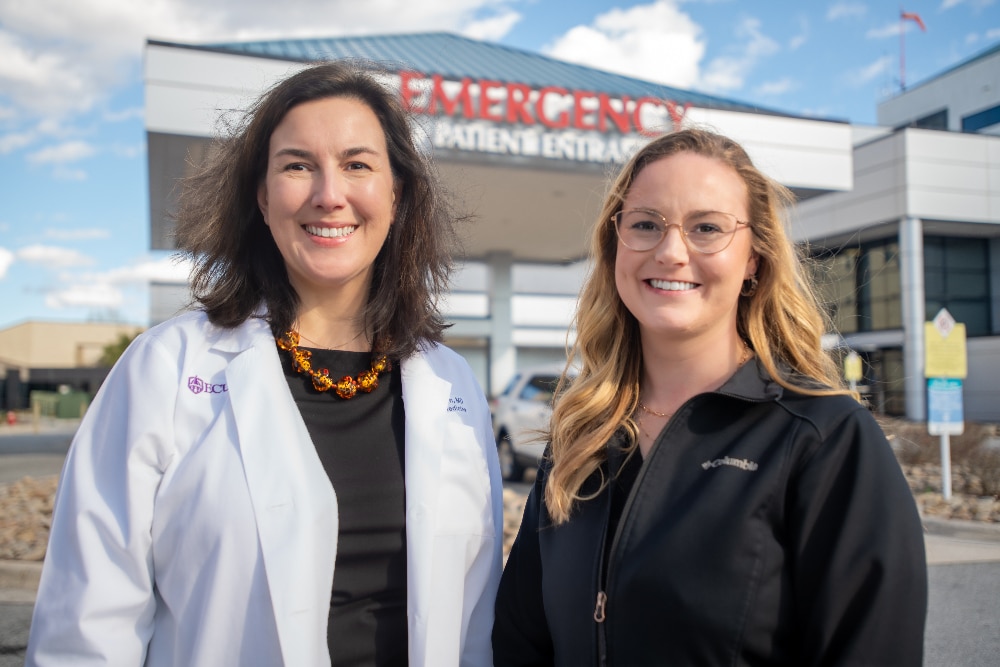
Meeting the challenge
At ECU Health Medical Center and throughout ECU Health system hospitals, leadership teams have needed to adapt quickly to meet the needs of the many patients seen through EDs.
Alex Baylis, ED nurse manager at ECU Health Medical Center, said she has been proud to see the department’s flexibility and persistence while helping patients through their time in the ED.
“We have flexed and bended, added and changed our spaces, we’ve changed our beds, we’ve changed our staffing patterns, we’ve changed our hours of when team members come in, when team members go home. We’re doing all that we know to do, and have the power to do, to get care to our patients faster and better,” Baylis said. “Right now, we’re facing really difficult barriers and obstacles within our space that are challenging, but we’re doing everything that we can and know to do to help our patients.”
Dr. Patterson echoed Baylis’ sentiment.
“We’ve tried, we are going to continue to try and it isn’t going to look the way it used to look,” Dr. Patterson said. “I think patients have been very understanding when we’ve had to do things in a different way. It is a really ugly reality right now, but we’re going to flex a lot. What I really want people to understand is what you see in the ED is actually all of the hospitals and all of health care right now.”
Matter of perspective
Dr. Patterson said she has seen a great deal of change in eastern North Carolina since she first came to the Brody School of Medicine and ECU Health Medical Center 17 years ago.
When she arrived at what is now ECU Health Medical Center, she became just the fifth female emergency medicine clinician. Today, she said, there are more females than that in the intern class alone.
“I am not the generation that was the first and only,” Dr. Patterson said. “I had other female residents who were with me. We were definitely the minority, but we’re not such a minority today.”
Dr. Patterson estimated there to be about a 50/50 male to female split among emergency medicine training program graduates across the country today and more women are holding education leadership positions.
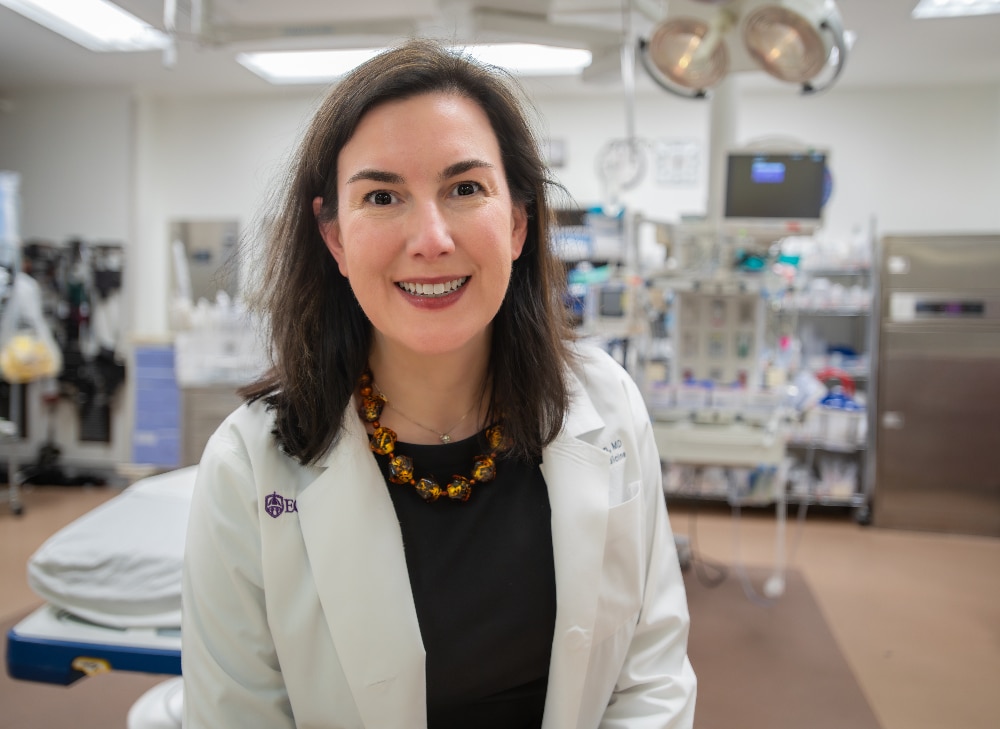
However, that same shift has been slower to develop on the administrative leadership side.
“It takes some time to get all the way up the ranks so there are probably a dozen women chairs in academic medicine and emergency medicine and other positions like mine,” Dr. Patterson said. “But really, not a large number of us when you consider there are a couple hundred of our programs.”
From an outsider’s perspective, the number of female leaders in the ED may seem unique, but to those on the floor, it’s nothing to bat an eye at.
“We’re kind of past that – ‘Look, that’s so cool.’ Some days we’re still there,” Dr. Patterson said. “A lot of days it’s like, ‘Oh, yeah.’ I mean, I don’t think our nurses notice. We could go 24 hours in one area and it’s all women physicians and it’s just like that’s Tuesday. We don’t stop and notice that.”
Baylis noted that from the nursing perspective, more males in nursing tend to gravitate toward EDs and Intensive Care Units, but on the leadership side it is predominantly females.
Dr. Patterson reflected on the early part of her career and how conversations have shifted and become more normalized. Whether it’s the way patients address female providers or the interactions teams have with each other, she has seen positive change.
“I have men, physicians now who can have open discussions about, ‘Hey, how are you taking your FMLA leave when you have a baby? Are you splitting it, are you taking it at the end?’ The normalization of those conversations, that’s what comes from it,” Dr. Patterson said. “We’re not there all the way, we still have a long way to go. But it was not this normal in my first job.”
Providing compassionate care in trying times
As the care needs in EDs have changed, Baylis and Dr. Patterson noted how crucial it is to connect with patients on a human level and provide high-quality, compassionate care in stressful situations.
Baylis said the mindset of nurses in the ED has changed drastically in the past few years.
“In emergency nursing, you had to have tough skin and be almost hard,” Baylis said. “I think it’s changed with the population that we’re seeing in our patients, but also the care that we’re giving. We’ve learned to be more soft and more caring and taking that time to make a connection. We can be nice while still setting boundaries with our patients.”
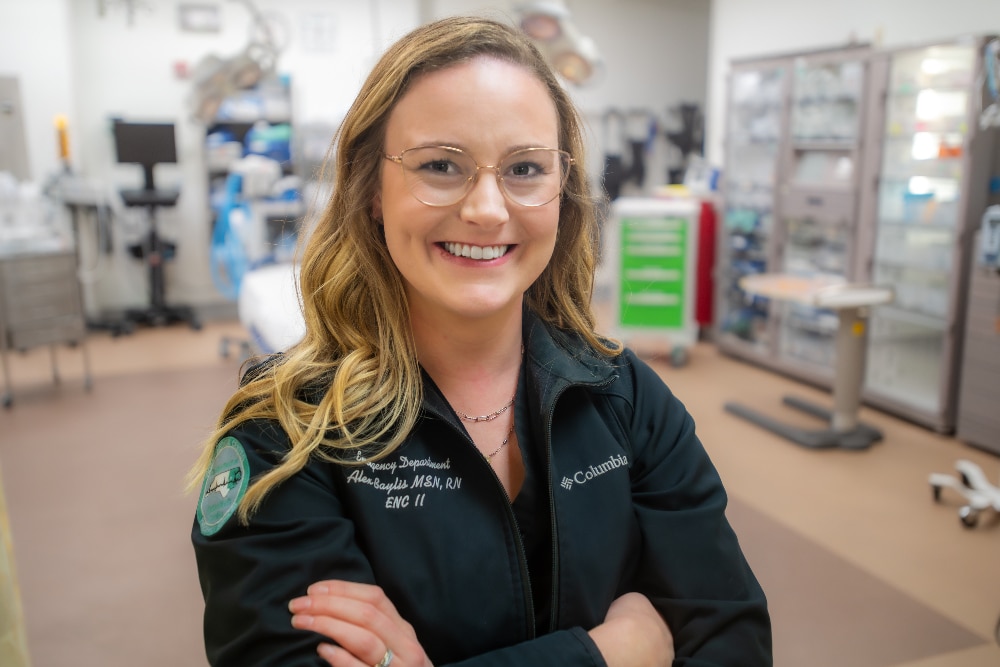
Dr. Patterson said providing care in eastern North Carolina is a very unique situation. She shared that she trained at a county hospital in New Orleans and that in large, urban environments, it’s less common that she or her family members would be patients at the same hospital at which she practices.
Here, there is no line.
“So much of what I saw when I was in my own training, in my mind, I could pretend it wasn’t going to happen to me and you get this lovely distance that you don’t have here. And that’s good for you but, wow, some days it’s really hard,” Dr. Patterson said. “This is the same hospital you go to, right? I had my baby here. My husband has been a patient in our ED. My dad has been admitted here. I think this place is really challenging for that because it’s your community, you know, there’s no separation here.”
Baylis and Dr. Patterson said while that challenge exists, they are proud to serve in the same community they call home. What’s not lost on either of them: that solutions they are working to find in support of the communities they serve also directly impact their own family and friends — and light the path for ED teams to follow.
Resources
At ECU Health, we understand that partnerships and collaboration are at the heart of how we will solve the complex challenges facing rural health care. That is why ECU Health leaders joined a bipartisan group of lawmakers, health care professionals and leaders at the North Carolina Healthcare Association Meet and Greet event hosted at Pitt Community College Thursday, Feb. 29.
With a busy agenda covering topics that included the importance of building a strong workforce, improving access to care in rural communities and the battle to ensure insurance coverage for basic medical needs, ECU Health was honored to take part in the dialogue on behalf of the communities it proudly serves.
Brian Floyd, chief operating officer of ECU Health, said the opportunity for a health system to connect with the community it serves is crucial to meeting its mission.
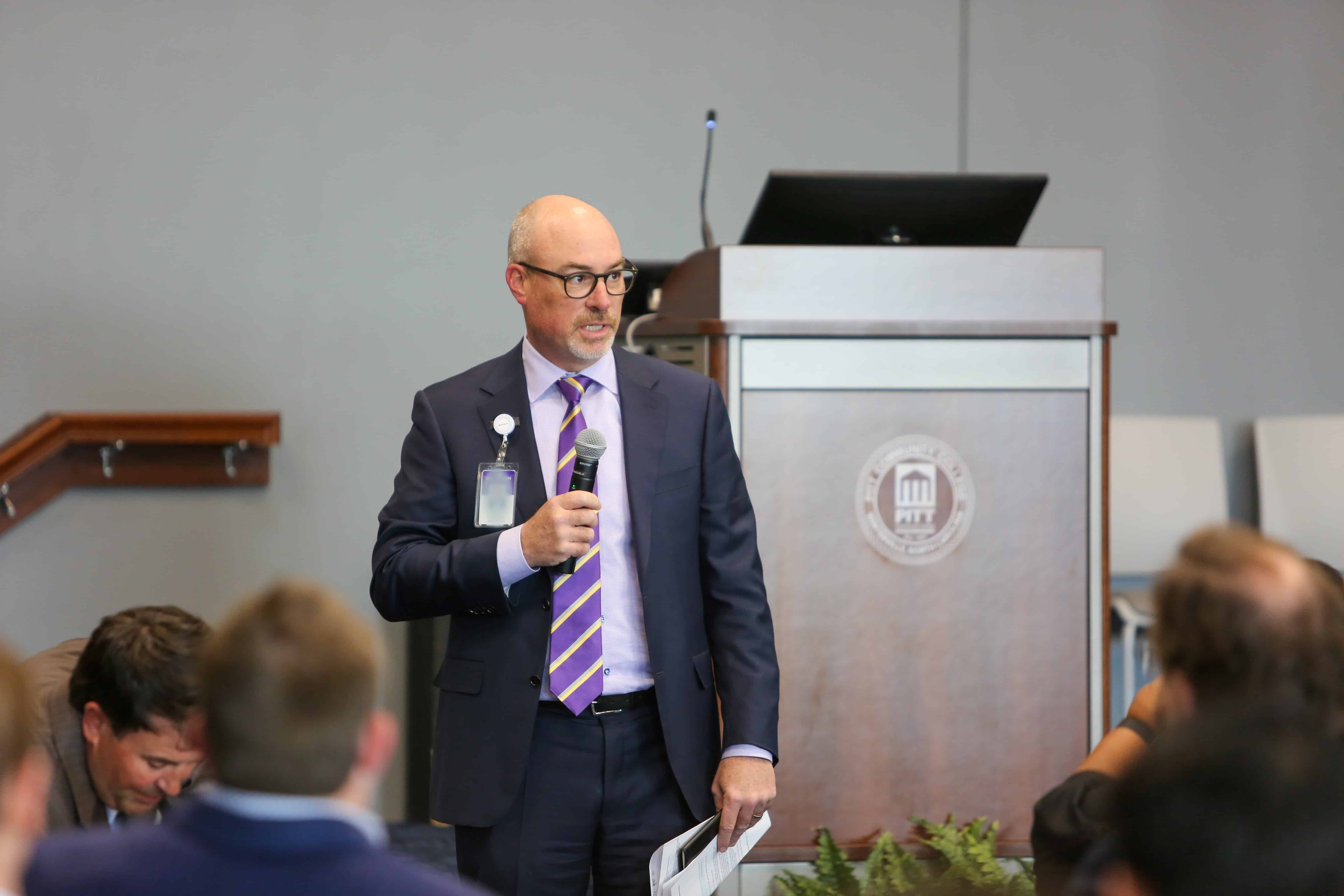
“Make no mistake, rural health care is difficult. But we are fortunate to have experts here at ECU Health helping us build the national model for sustainable regional health care,” Floyd said. “These forums provide us a great opportunity to share our expertise, engage other health professionals and partner with community leaders and businesses alike to help bridge gaps and ensure we can be successful in our mission to improve the health and well-being of the region. With teamwork, collaboration and partnership, we can help create healthier lives and communities in rural communities across North Carolina.”
Learn more about Brian Floyd and his role at ECU Health on his Thought Leadership page.
Eight students in the Brody School of Medicine at East Carolina University have been named to the North Carolina Medical Society Kanof Institute of Physician Leadership’s 2024 Future Clinician Leaders College (FCLC).
Noor Baloch, Nolan Davis, Michael Denning, Charles Johnson, Hannah Rayala, Emmalee Todd, Ben Wise and Michael Wright will join students from other colleges and universities across the state who are interested in leadership and professional growth.
“The FCLC program provides us with a unique, structured ability to engage with our future colleagues on community-level projects that address the varied landscape of health, health equity and health care,” Denning said. “Gaining intense leadership training alongside other health professions students will allow me both introspection and outward reflection on my future role, as well as mechanisms to ensuring our patients are excellently and compassionately cared for.”
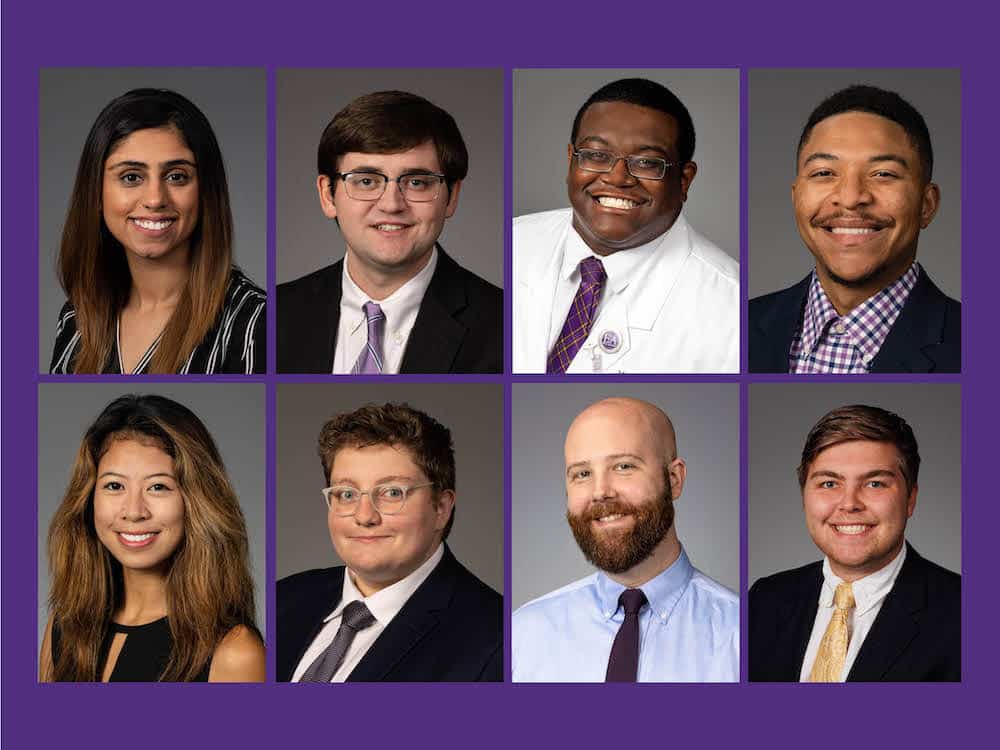
Prospective students are referred and nominated to the program by faculty, mentors and others at their respective colleges. The 2024 class includes 27 students representing disciplines including medicine and pharmacy from ECU, UNC Chapel Hill and Duke, Campbell, Wake Forest, Western Carolina and Wingate universities in North Carolina, as well as St. Georges University in Grenada.
FCLC is a partnership with North Carolina Area Health Education Centers (NC AHEC) to provide opportunities of leadership in an interprofessional health care environment and networking across institutions. The one-year program is designed to enhance health care experience through advocacy, change-driving and individual leadership skills.
Baloch said she wants to be a leader when it comes to ensuring proper care for her patients.
“I felt that in order to be the best leader I could be, I needed additional training alongside other health care professionals to really understand my role as a physician in a health care team as well as establish how I can best serve my patients in that way,” she said. “Through this program, I am able to understand my own leadership style as well as my faults so that I can work on them and ensure I am self-aware regarding how I lead interactions with my patients.”
The program emphasizes leading in interprofessional health care environments and networking across institutions. The interactive learning format encourages participants to engage with their peers and program leaders, faculty and speakers. They also participate in a project that gives them exposure to some of the major health policy challenges relevant to North Carolina.
“This is an incredible opportunity for these eight students to work with other interprofessional students across the state to develop the skills necessary to be a leader in health care tomorrow,” said Dr. Amanda Higginson, Brody’s associate dean for student affairs. “We know our Brody graduates go on to do amazing things; this wonderful program will further develop these students to both improve the health and well-being of the region, but also to augment the already great training they receive here to prepare them to become physicians who will meet the health care needs of the state, both critical mission goals of the school.”
The students will have hands-on experience cultivating leadership skills including team-leading, communication and career development.
“The purpose is to build leadership that centers on self-awareness and fosters authenticity that allows each student to act in alignment with their core values as a leader, encourage and assess information from different perspectives, and balance transparency,” according to the program website. “With the individual core as a foundation for leadership development, this course prepares students for the leadership journey, allowing the individual to establish a strong sense of purpose and understanding of who they want to be as a leader.”
Todd said the nature of medicine as a “team sport” necessitates the ability to collaborate with other health care professionals at any given time.
“In order to do this, it’s important to understand your own teamwork preferences and leadership style and be able to refine them to better suit your purposes,” they said. “I believe my participation in FCLC is providing me the opportunity to do exactly that, which will hopefully lay the groundwork for not just my own success in residency and beyond, but the success of the health care teams of which I will be part.”
Todd said the unique experience to explore a current health-related policy issue in North Carolina is valuable because it gives students a chance to propose potential solutions.
“So much of what impacts our patients’ health are factors that we can’t necessarily do anything about within a half-hour annual physical — their housing situation; the ease of their transportation to work or school; the accessibility of nutritious food, clean water and green space where they live,” they said. “Working towards policy change is one way that physicians can make an impact on these broader societal factors, and it’s something that I would like to be involved in throughout my career. FCLC is equipping me with the experience and skillset I need to begin to pursue this goal.”
Read more from ECU News Services.
Like many health care organizations across the nation, ECU Health is facing an immense challenge: solving the growing health care workforce shortage.
Through community partnerships, the health system is doing its part to grow its workforce, starting right here in eastern North Carolina.
More than 200 high school students from Pitt County, Duplin County and other surrounding communities spent the day learning about various rural health care career opportunities at ECU Health’s Health Sciences Academy career fair Tuesday, March 5.
The event featured 30 hospital departments and exhibitors from partners including Pitt Community College and Beaufort County Community College hosted interactive and creative booths to educate students on different health care careers.
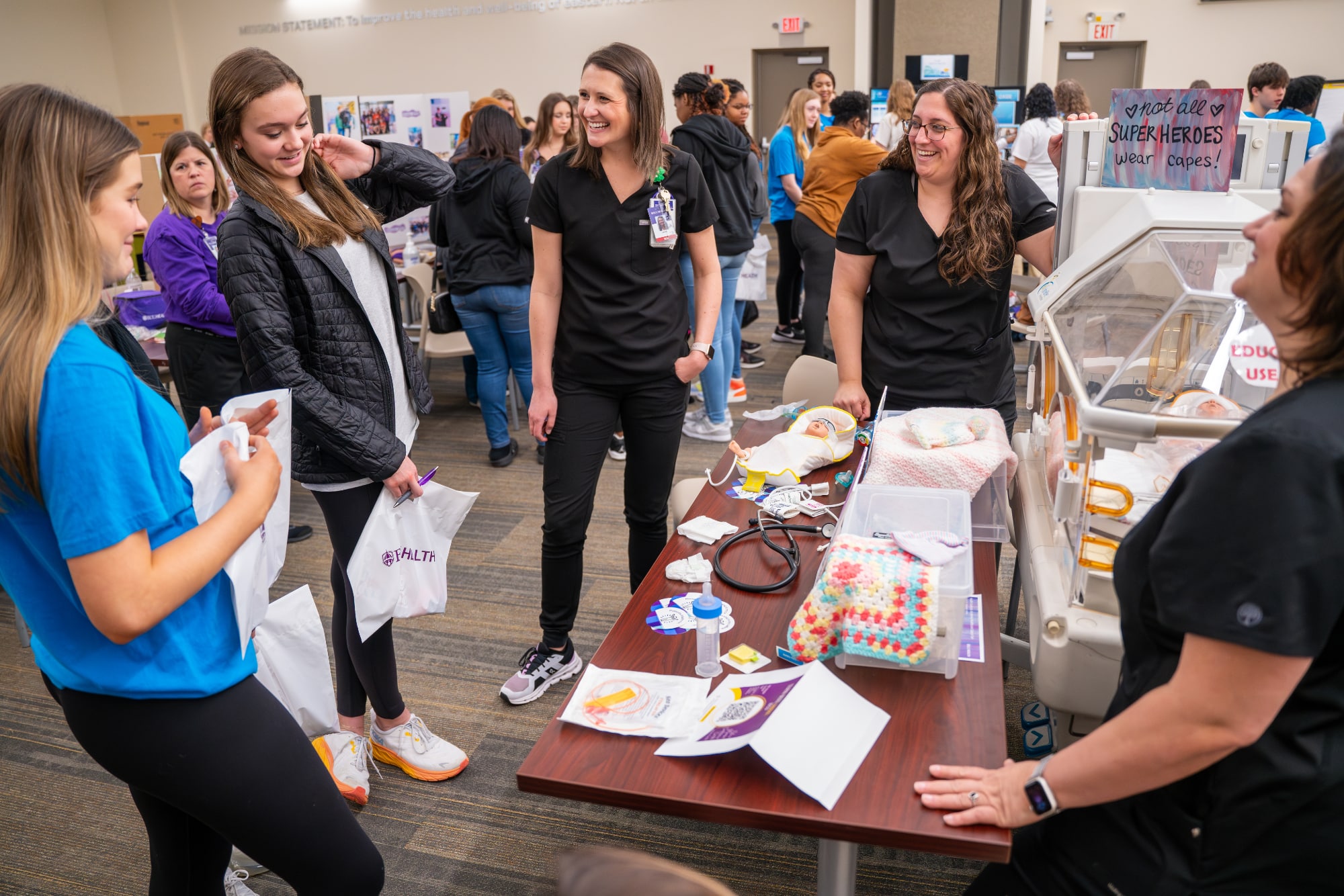
“It is such a joy to host these students and to expose them to so many interesting and important health care career opportunities available to them right here in eastern North Carolina,” said Nancy Turner, workforce development program coordinator, ECU Health. “Our students are our future workforce at ECU Health and partnerships like this are essential to ensuring we can care for our region. There are so many exciting and fulfilling opportunities to make a difference right here in their community, and we hope that today served as inspiration for them as they make important decisions about their future.”
The career fair is another representation of ECU Health’s commitment to growing health care talent locally. Through the Health Sciences Academy, ECU Health partners with public schools to provide eastern North Carolina’s youth with the education and resources to pursue exciting and fulfilling futures in health care. During high school, Health Sciences Academy students complete a minimum of six courses that expose them to potential health care careers and prepare students to pursue college-level health science programs upon graduation. They participate in job shadowing, mentoring, internships, medical research opportunities, career exploration and volunteering.
The Pitt County Health Sciences Academy is a partnership between ECU Health, Pitt County Schools, Pitt Community College, East Carolina University, the Brody School of Medicine, Colleges of Allied Health Sciences, Engineering and Nursing at East Carolina University, School of Dental Medicine at East Carolina University, the Eastern Area Health Education Center and the Greenville-Pitt County Chamber of Commerce.
Resources
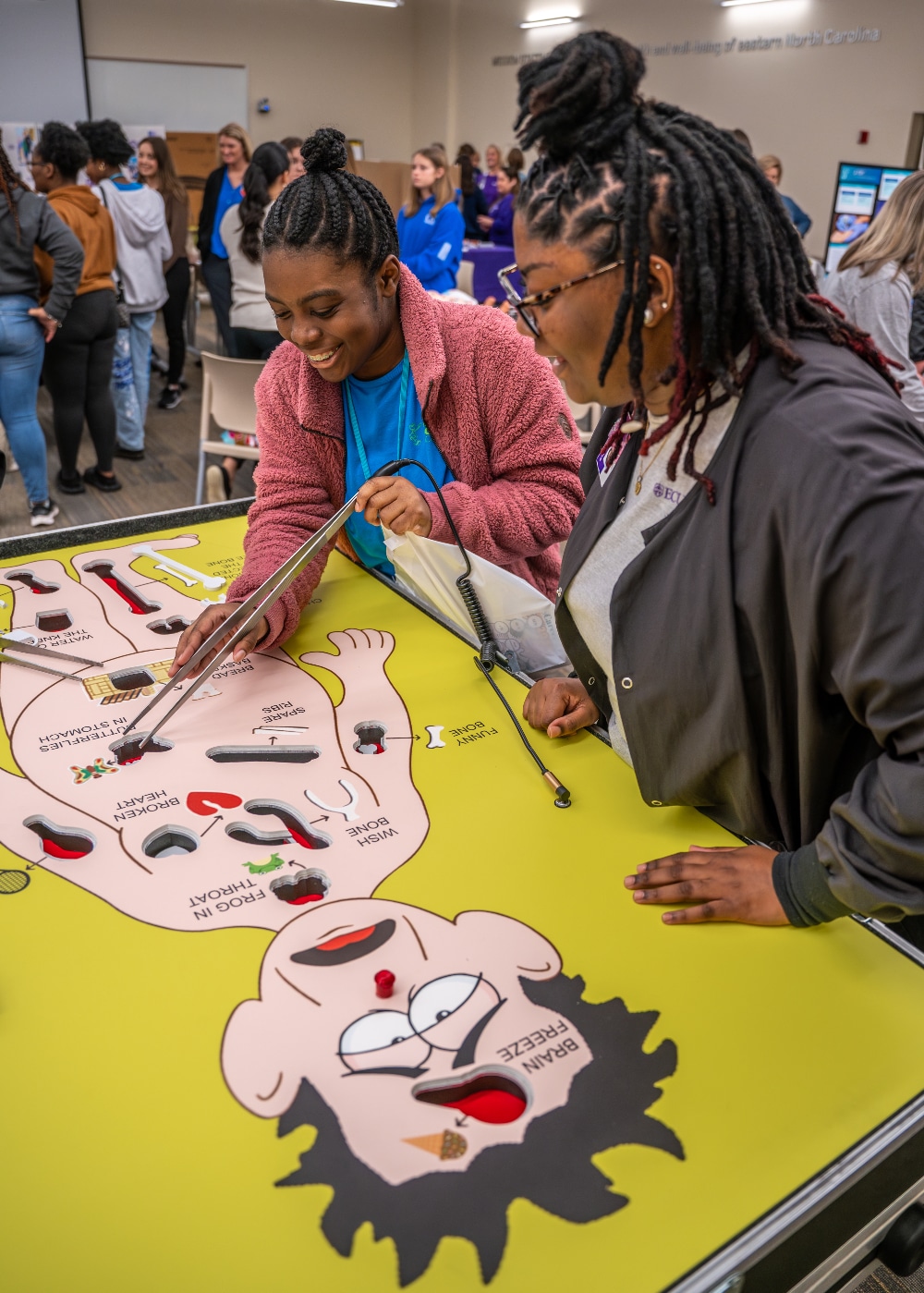

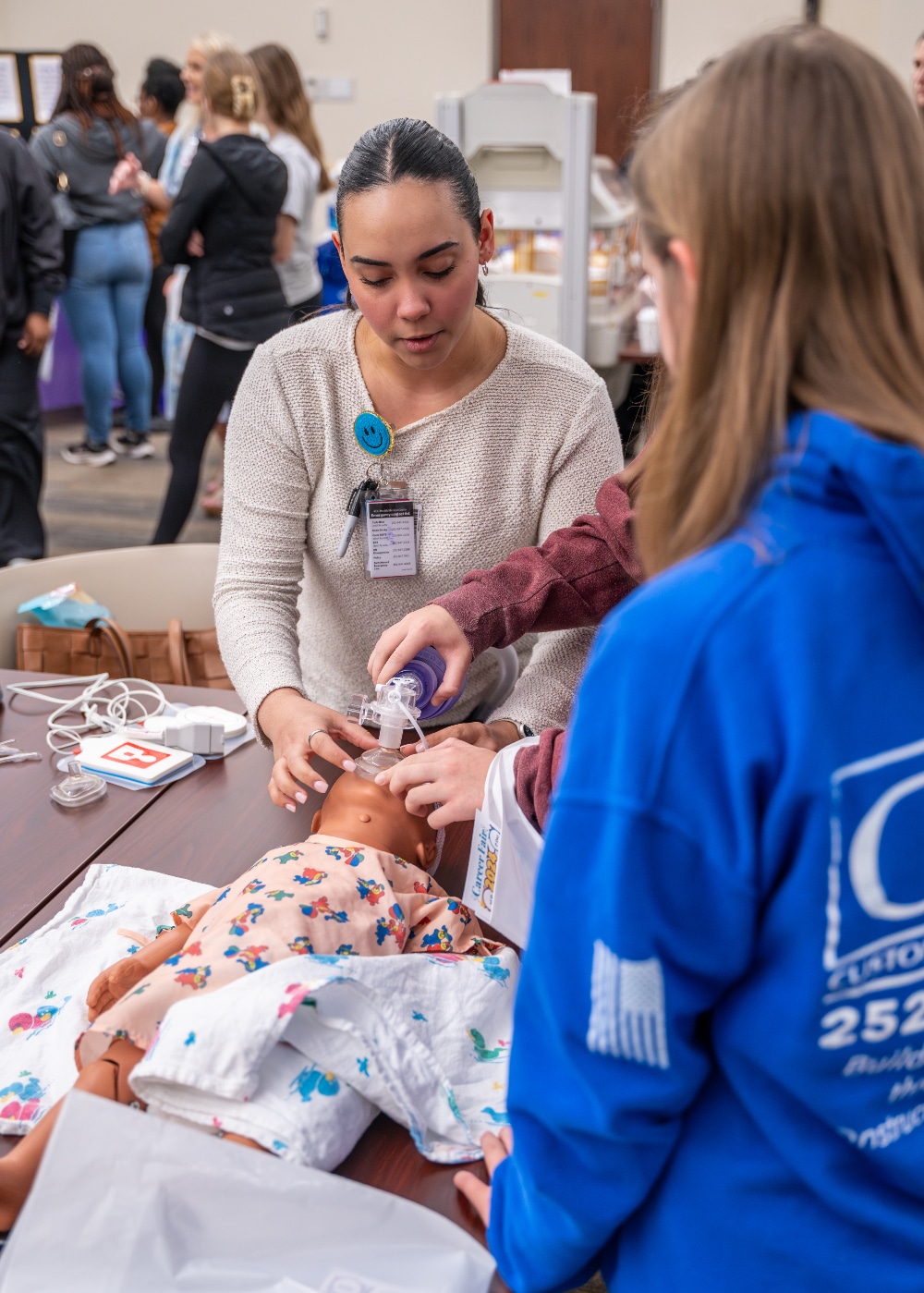
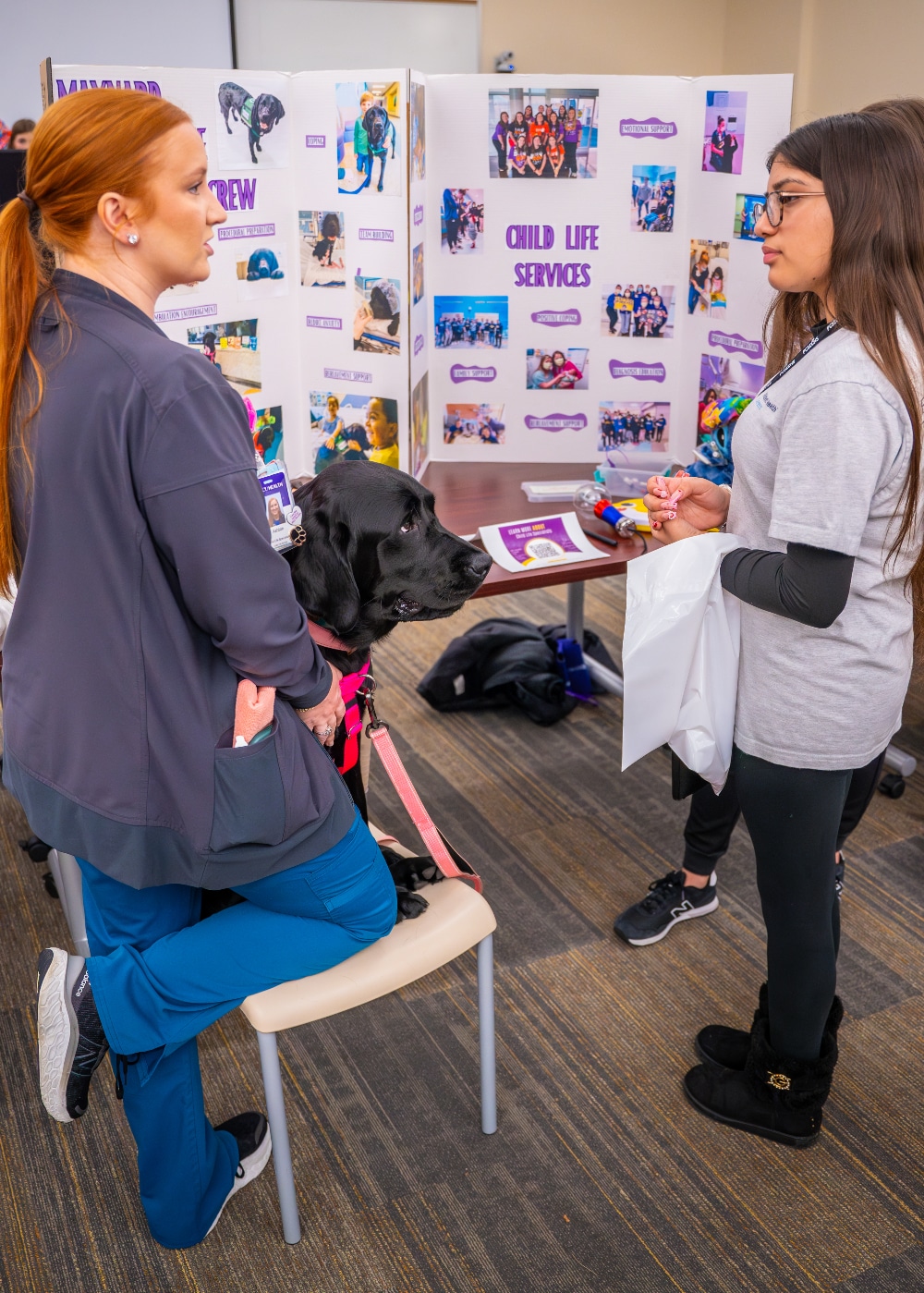
Greenville, N.C. – ECU Health Medical Center has been nationally recognized in Becker’s Hospital Review as the top hospital in the country for patient experience, according to a new ranking from PEP Health. PEP Health analyzed more than 30 million online patient reviews from hospitals across the country in 2023.
According to Becker’s, PEP Health extracts behavioral insights data from patient comments shared on multiple social media and review platforms. Hospitals with at least 300 staffed beds and at least 250 patient experience comments were assessed across seven domains: fast access, effective treatment, emotional support, communication & involvement, attention to physical and environmental needs, continuity of care, and billing and administration.
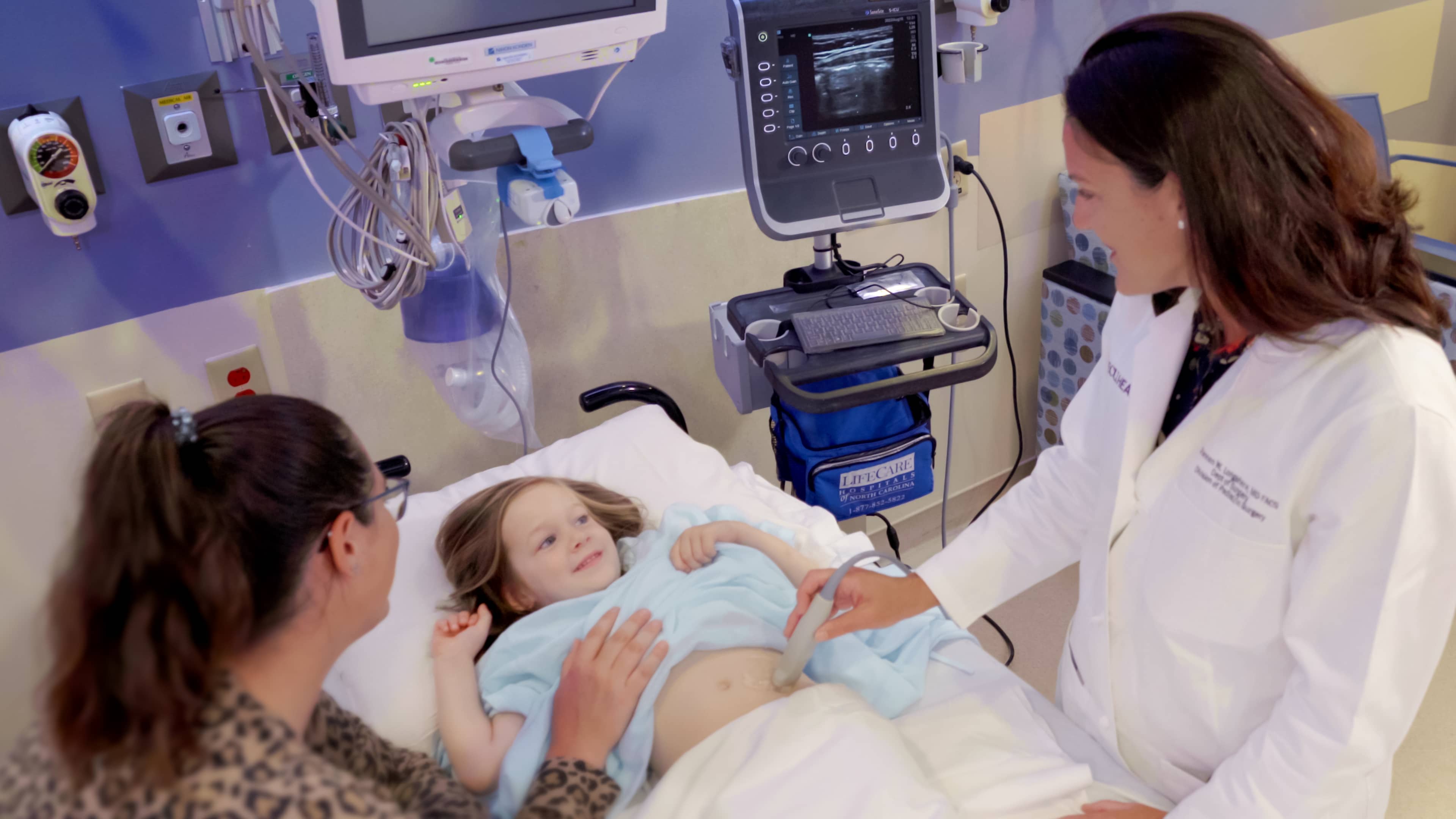
“At ECU Health, creating positive patient and team member experiences is at the heart of who we are as a mission-driven organization,” said Dr. Julie Kennedy Oehlert, chief experience officer, ECU Health. “Our continuous journey toward excellence in patient care is informed by the perspectives of our patients and driven by the hearts of our team members. Our patients know that ECU Health team members are here to care for them with compassion and respect. It is gratifying to know our intentional focus on creating safe, healing environments is affirmed by the feedback of those we are honored to serve. We are incredibly grateful to our patients for their honest review of the care we provide.”
ECU Health’s commitment to creating positive patient experiences can be seen across the health system. The Outer Banks Hospital achieved 5-star status in overall patient experience in 2023 and ECU Health Bertie Hospital met requirements for 5-star status as well from Centers for Medicare and Medicaid Services (CMS). The Hospital Consumer Assessment of Healthcare Providers and Systems (HCAHPS) utilizes these star ratings to summarize the patient experience, which is one aspect of hospital quality. The ratings are based on surveys that patients fill out after their inpatient stay and are designed to help patients choose excellence in health care. The HCAHPS survey captures the patient’s experience of communication with doctors and nurses, responsiveness of hospital staff, communication about medicines, cleanliness and quietness of the hospital, discharge information, transition to post-hospital care and overall rating of the hospital.
ECU Health’s providers also play an important role in supporting excellence in patient experiences. In the clinic setting, 99% of ECU Health providers are rated by their patients as 4.0 or higher out of 5 stars, with 96% of those providers being 4.5 stars or higher, according to Press Ganey LLC. ECU Health’s providers’ overall ranking as a medical group for excellence in care is 4.7 out of 5 stars based on patient reviews from Healthgrades, Google, WebMD, Wellness, Vitals and more.
“I am proud of the doctors, nurses and all team members who work tirelessly to deliver highly-reliable, human-centered care to eastern North Carolina,” said Brian Floyd, chief operating officer, ECU Health. “The experiences we create within our health care settings can leave lasting impressions on those we serve. I am fortunate to witness ECU Health team members in action every single day, and their role in compassionately caring for our community members – often during their most difficult moments – is central to our mission of improving the health and well-being of eastern North Carolina.”
According to the Centers for Disease Control and Prevention, colorectal cancer is the fourth most common cancer, apart from some kinds of skin cancer.
While colorectal cancer is common, early detection and prevention can be lifesaving. Of those ages 50 to 75, only about 7 out of 10 adults in the United States are up to date with their colorectal cancer screenings. Screenings can be done in a variety of ways, some of which include colonoscopies and fecal testing. When cancer is detected through preventative screenings, treatments can begin earlier to increase the chance for positive outcomes.
No one knows the importance of screenings more so than Stephen Braddy.
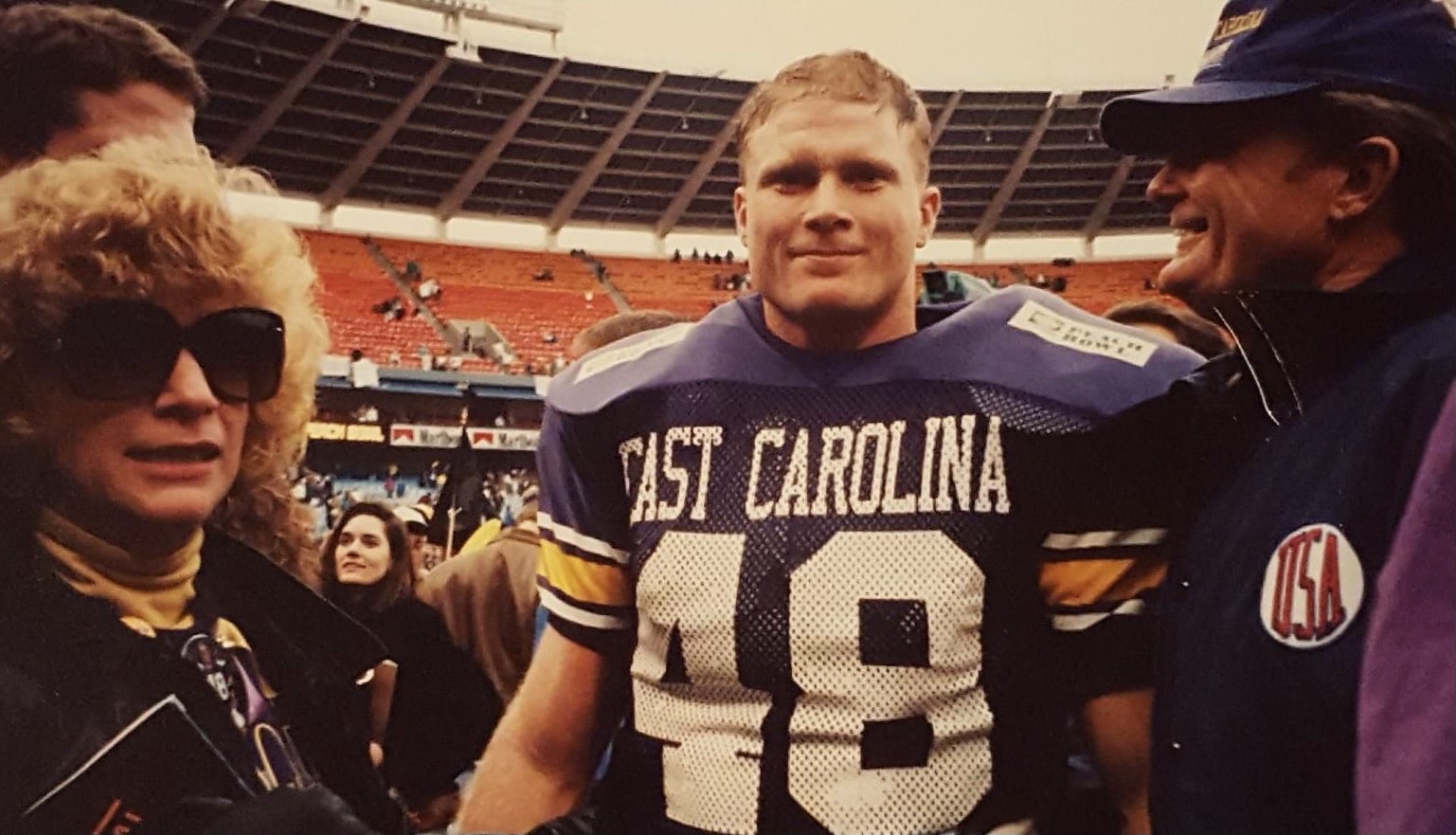
Braddy grew up in eastern North Carolina and played various high school sports before going on to East Carolina University to play football as a linebacker, even playing in the 1992 season that led the Pirates to the Peach Bowl. Now, Braddy is retired and works at Washington Montessori School. He also spends time advocating for the importance of colon cancer screenings.
This cause is important to him because in 2022, after encouragement from his family and friends, he scheduled a colonoscopy at ECU Health which led his doctors to discover a mass in his colon.
“I woke up from the procedure and the doctor comes in with this look on his face and says we’ve got some issues,” says Braddy. “We couldn’t finish the colonoscopy because there was a tumor the size of an egg in the way. I was immediately sent for blood work and scans.”
Braddy was quickly scheduled for surgery on July 12, 2022. During the surgery, doctors removed part of his colon, the mass and 19 lymph nodes, as well as did a colon resection. Following the surgery, he went through four sessions of IV chemotherapy with chemotherapy medication in between.
As a former college football player, Braddy has always been an active person, and he wasn’t going to let treatment keep him from staying active.
“I wanted to show cancer up and beat it,” he says. “Right after my first chemo treatment, I got home and went on a run. I continued to work out through all the sessions.”
In addition to staying active, Braddy also fasted for 68-72 hours around each chemotherapy session. He credits both fasting and staying active as helpful in controlling his nausea and fatigue after treatment.
Since his diagnosis, Braddy has become passionate about talking to others about the importance of colorectal cancer screenings.
“If I could rewind things, I would have no hesitation to get a colonoscopy done so much sooner. The colonoscopy procedure is easy and well-worth the effort it takes to get one. A lot of people, including me, think ‘this will never happen to them.’ Screening could have prevented me from surgery, chemo and bills,” he says.
Regular screenings for colorectal cancer are recommended to begin at age 45. If you’re eligible for a screening and do not have one scheduled, take time during Colorectal Cancer Awareness Month in March to talk to your primary care provider, obstetrician-gynecologist or gastroenterologist about scheduling an appointment.
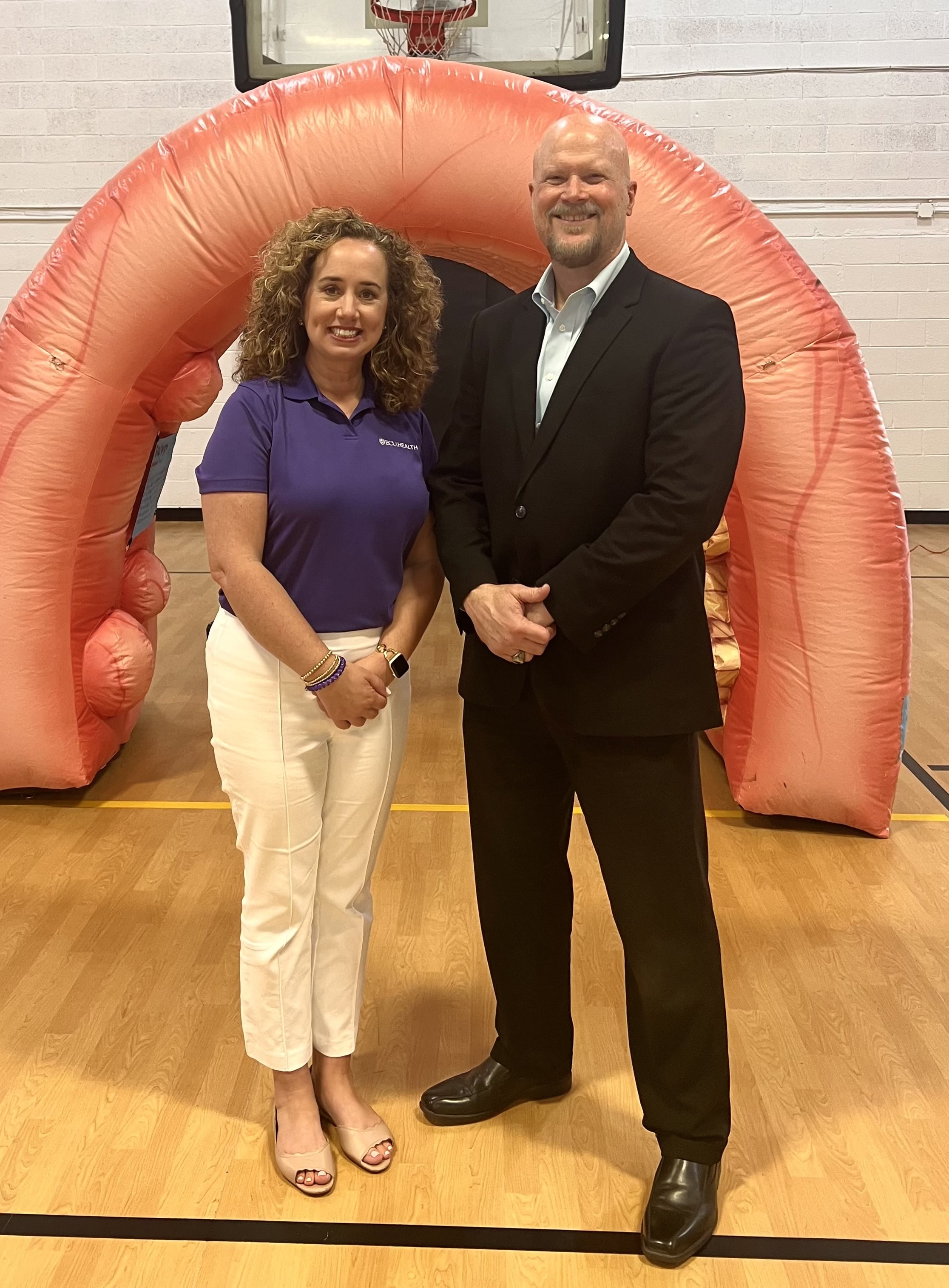
Now, Braddy is cancer-free, and continues to stay on top of his appointments to take preventative measures to stay healthy.
“If there’s one thing I would say to people it would be that just because you feel good doesn’t mean something might not be wrong,” Braddy said. “Colon cancer is very treatable if caught early. If not for yourself, schedule a screening for your family and loved ones.”
Learn more about screening locations and scheduling information on our Reminder page.
The 2023 North Carolina Governor’s Award for Volunteer Services were recently announced, and four volunteers with ECU Health have been recognized. The award honors the true spirit of volunteerism by recognizing individuals and groups who make a significant contribution to their community through volunteer service. The ECU Health award winners this year are Shantell McLaggan, Gaddamanugu Uma and Ed Chambers. Chad Tucker won the North Carolina Governor’s Award for Volunteer Service: Paid Volunteer Director.
Shantell McLaggan and Gaddamanugu Uma
Shantell McLaggan and Gaddamanugu Uma are third-year medical students at the Brody School of Medicine at East Carolina University and North Carolina Schweitzer Fellows who have led the effort to train more than 60 health professional and undergraduate student volunteers to serve as doulas in ECU Health Medical Center’s Labor and Delivery Department.
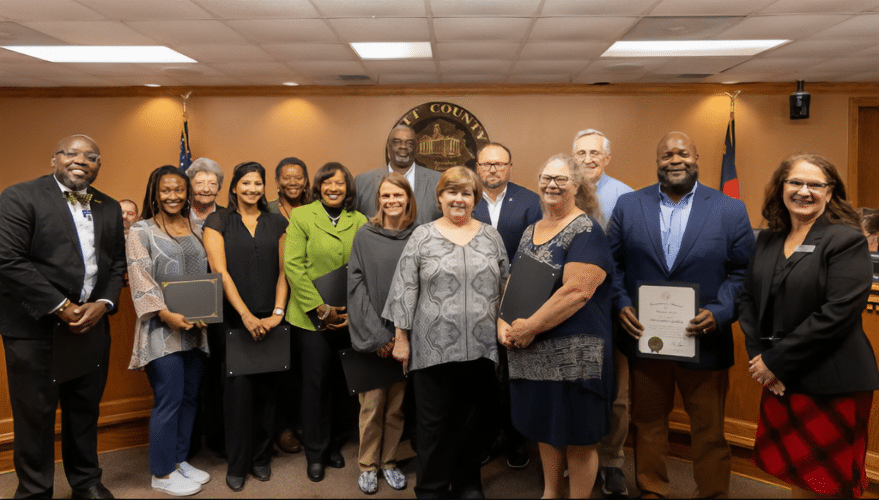
Although the program had some initial growing pains, patient feedback about the program has remained appreciative and positive.
“Patients are always recommending our services to others who will give birth at ECU Health,” McLaggan said. “An unfortunate number of people go through the birthing process with little to no support, and our doulas have stepped up to alleviate that issue.”
Word of the program has spread, and they are receiving an increasing number of requests for doula support from mothers across eastern North Carolina.
“Our first cohorts of volunteers have grown into incredible role models for our newer doulas,” Uma said. “Now Shantell and I are focusing on securing the long-term sustainability of our program. We’re actively brainstorming innovative methods to enhance and optimize our services, aiming to amplify our impact and facilitate safe, empowering birth experiences for families in our community.”
Both McLaggan and Uma were surprised to be recognized with this award.
“Receiving this award was unexpected and humbling. It was nice to be recognized for our hard work and dedication to this community. Uma and I have always been passionate about women’s health and racial and social equity, and creating this program has meant a lot to us,” McLaggan said.
Uma cited the vast impact the program has made in a short time.
“When we began, our goal was to support 50 patients in a year, and we’ve far surpassed that expectation; in just 12 months, we trained 67 volunteers who supported 262 birthing patients!” This is an important achievement, Uma said, because of ECU Health’s wide reach to patients across the region. “ECU Health Medical Center is the sole provider of high-risk prenatal care across our 29 county region, so many of our patients have to navigate countless barriers to even make it to our hospital.”
Both McLaggan and Uma emphasized that their efforts would not have been fruitful if not for the support of administrators, classmates and fellow volunteers.
Ed Chambers
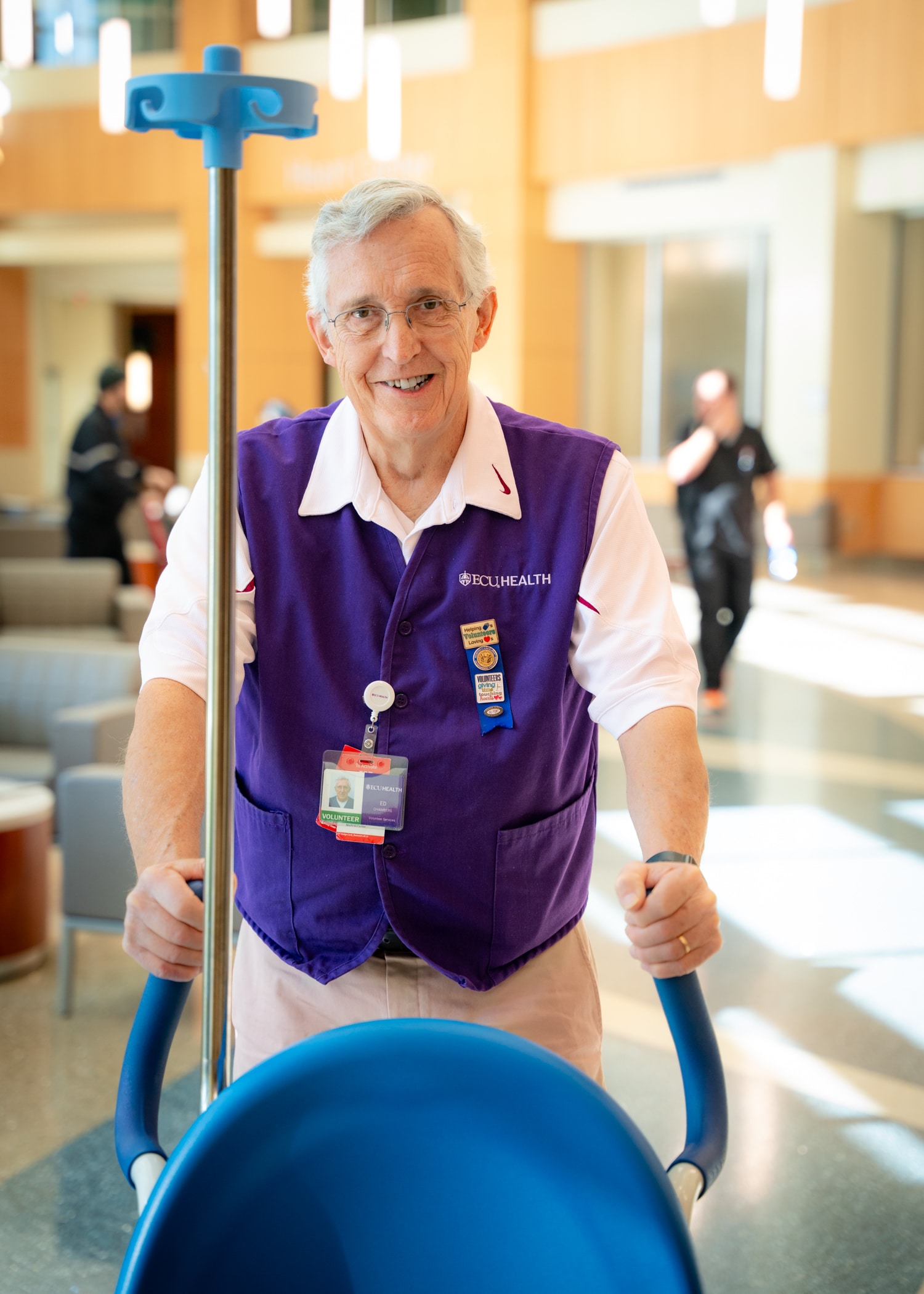
Ed Chambers is a patient escort volunteer at the Medical Center, where he has garnered over 5,000 hours of service in the 23 years he’s volunteered for the system. The Pennsylvania native grew up on a dairy farm before being sent overseas to Okinawa, Japan for service in the Air Force. He eventually moved to Goldsboro, North Carolina, where he met his first wife. She passed away in 1997, but he remarried in 1998.
Chambers worked for 30 years at DuPont in Kinston and Charleston, South Carolina before retiring, and in 2000, his wife came home and told him she applied to volunteer at the Medical Center.
“I asked her if she got me an application, and she said, ‘get yourself one.’ So I did and we worked together for about seven years until she had a knee replacement,” Chambers said. “I’ve just enjoyed it ever since and keep right on getting into it.”
Chambers has been recognized as the Volunteer of the Year for the hospital, and he enjoys training new volunteers. He primarily works in the North tower and in the Cancer Center, and while he can only work one day a week, he hopes to continue volunteering for as long as he’s able.
“I’m hoping I can get 30 years in at the hospital,” he said.
Chambers’ favorite part of volunteering is the people.
“Over the years, I’ve enjoyed getting to know the other great volunteers and the patients,” he said. “I enjoy meeting people and helping them out. It’s been a pleasure.”
Winning the award was a “great honor” for Chambers, and it was special that his daughters, one of whom has also volunteered at the Medical Center, attended the award ceremony.
“I know there are a lot of people deserving of this honor, and I hope their time comes,” Chambers said.
Chad Tucker
Chad Tucker is the director of the Volunteer Services Department at the Medical Center, where he oversees the recruitment, training and quality assurance for all volunteers in the Medical Center. He’s worked at ECU Health for nine years, and in addition to his work at the Medical Center, Tucker serves as the vice president for the NC Hospital Volunteer Professionals and volunteers with his fraternity, Alpha Phi Alpha, where he’s serving as the Area Director.
Tucker attended East Carolina University where he got two bachelor’s degrees and a master’s in public health with a health care administration concentration.
“I thought I wanted to be an attorney,” he said. “I took the LSAT and realized it wasn’t my passion.” Tucker said he “fell into” his role and he’s loved it ever since. “This isn’t a position; it’s my passion.”
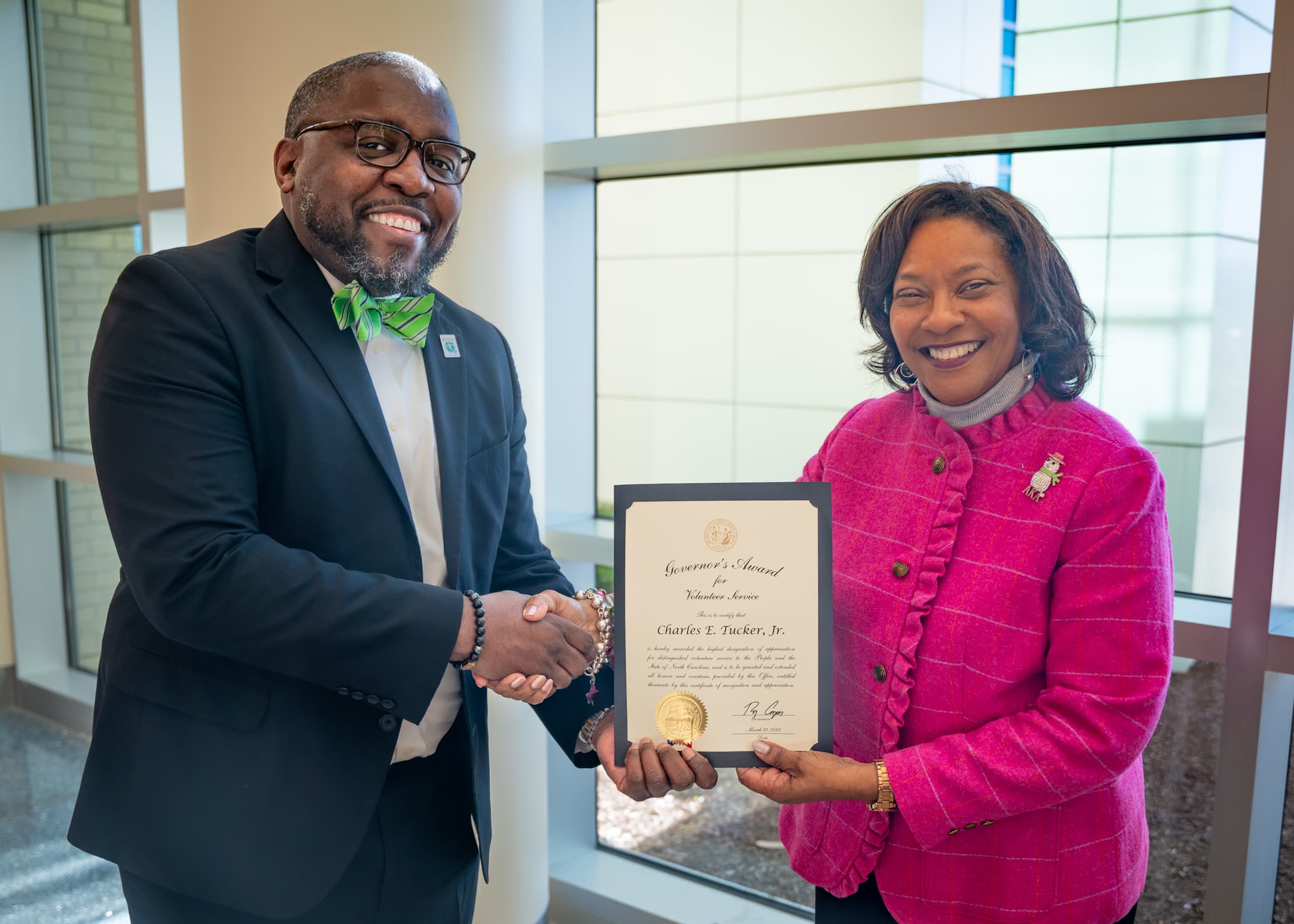
The best part of his job, he said, is seeing the volunteers interact with the patients, team members and guests.
“I enjoy seeing the impact they make, whether it’s a teenager, a college student who wants to go into health care or someone who is retired wanting to give back.” For Tucker, he doesn’t do the work for recognition. “I just love seeing the organization flourish,” he said. “It’s amazing to see our volunteers’ work and hear team members or patients who are grateful for their service.”
During his tenure, the number of volunteer programs has grown.
“We’ve grown our pet therapy program and our doula program,” he detailed. “We’ve added some people for art therapy, and we’ve had some people do music therapy, as well. Our teen program is one of the largest in the state for VolunTeens, ages 15-17. We’ve added our family medicine clinic and volunteers at the Wellness Center, as well.”
Those experiences have made his time with ECU Health rewarding.
“I’ve loved the opportunity to interact with so many different team members, volunteers, patients and staff, but I’ve also loved the professional development to grow,” Tucker said. “I like to volunteer in the community, so it’s a great marriage of me volunteering and professionally managing volunteers.”
When Tucker attended the Pitt County Commissioner’s meeting to recognize McLaggan, Uma and Chambers, he was surprised to learn he’d won the North Carolina Governor’s Award for Volunteer Service: Paid Volunteer Director.
“I was in complete shock,” he said. “I’m honored to be of service as a paid volunteer, but I also love engaging with volunteers who want to serve in the hospital and community.”
Jennifer Congleton, the administrator of pastoral care and volunteer services, hired Tucker and has enjoyed watching him grow into his role.
“To see him recruit and retain volunteers and become a director – it’s been a tremendous feat,” she said. “It’s been a privilege to work with him, mentor him and see him develop into a leader.”
Congratulations to the winners and thank you to all of the volunteers and team members who serve eastern North Carolina at ECU Health. To learn more about the NC Governor’s Award for Volunteer Service, to nominate a volunteer or to see the full list of the 2023 winners, click here.
Tony Parker has always been an active runner and has long supported the Greenville running and biking community. When he collapsed near the finish line of a 5K road race due to cardiac arrest, quick action saved his life.
Tony was scheduled to run the half marathon that morning back in March of 2021, but backed down to the 5K after his knee started bothering him. It also gave him the chance to run alongside his wife, Delia. It turned out to be a life-saving choice.
“If it weren’t for Delia and the fact that she knows CPR, I wouldn’t be here today,” Parker said. “And if it weren’t for the city of Greenville and the rescue paramedic squads with their AED (automated external defibrillator), I wouldn’t be here today.”
He said he remembers running ahead of his group, including his wife, in the last stretch of the run since his knee was feeling better than anticipated. He patted a young runner on the back to encourage them and then he collapsed.
Delia, a dental assistant with the Department of Veterans Affairs, was required to take CPR courses every three months as part of her job training. That morning, her training paid off in a way she never imagined.
“I got up to the corner and I heard somebody shouting, ‘Man down.’ And when I turned the corner, I was like, that’s Tony,” Delia said.
Delia yelled for someone to call 911 and checked her husband for a pulse, but found none. So she started CPR.
“No one tells you when you’re training on a mannequin that you’ll hear crunching. No one tells you on a mannequin that it’s a different feeling when you’re pushing on somebody’s chest. And it was a little freaky when I first did it, but I was able to stay where I was and to do the compressions,” Delia said. “Someone, ‘Angel,’ as he liked to call them, came up and said, ‘Can I help you?’ They took over and I did some breaths for him.”
Tony and Delia still have not been able to track down the mystery “Angel” from that morning who helped them with CPR.
Shortly after, paramedics arrived and took over. They told Delia that Tony had been revived and he was on his way to ECU Health Medical Center. Paramedics could quickly identify Tony and his wife because he was wearing a road ID, which gives paramedics information on a person, should an emergency event occur. Tony and Delia said they encourage people in their running and biking groups to wear a road ID for these situations.
Delia met Tony at the hospital and some tension was relieved when Tony greeted her with his nickname for her – “Hiya, toots.”
Tony spent about a week at the hospital while the care team ran tests and navigated next steps for the Parker family. They said their time at the hospital and in clinics since has been reassuring and helpful as Tony adjusted to his new normal.
“The care there was incredible. When I say care, I mean that as the word of choice. They really care about what they’re doing and they make sure that they take care of you,” Tony said. “For somebody with a personality like mine, they make sure I don’t try to overdo it right away. The follow up has been spectacular. They stay in contact with my primary care doctor so we’re all on the same page as to what’s going on. ECU Health has been incredible.”
Dr. Christopher Gregory, an interventional cardiologist with ECU Health, said cardiac arrest can come on with no symptoms in some patients and out-of-hospital cardiac arrests are very uncommon to survive due to how quickly care is needed in these cases. Though they may seem similar, Dr. Gregory said it’s important to know the difference between a heart attack and cardiac arrest.
“Heart attacks are when the blood flow to the heart, because of blockages in the arteries, generally speaking, that feed the heart, is impaired,” Dr. Gregory said. “That causes the heart muscle to be stressed, strain or even die – that’s a heart attack. Cardiac arrest is when the heart itself stops. Sometimes heart attacks cause cardiac arrest, but they are completely different.”
Today, Tony is back out walking, running and biking as often as possible. He’s involved in groups of athletes that have experienced heart attacks, cardiac arrest or other heart health challenges and he said this has given him a great perspective on his own journey. As an advocate, Tony meets with groups around the state to stress the importance of road IDs, greater access to AEDs and the need to stay active throughout your life.
“I would rather be an active participant in life than a passive participant and I’ve seen the difference it’s made in the lives of people around me,” Tony said. “My father was very active and his quality of life was excellent. He did have a stroke that impacted him, but he was still walking and getting out there. He played senior games basketball at 86 years old. So when you see the difference, you understand.”
Learn more about ECU Health Heart & Vascular Care.
